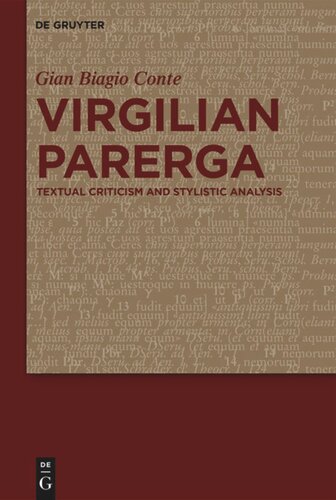

Most ebook files are in PDF format, so you can easily read them using various software such as Foxit Reader or directly on the Google Chrome browser.
Some ebook files are released by publishers in other formats such as .awz, .mobi, .epub, .fb2, etc. You may need to install specific software to read these formats on mobile/PC, such as Calibre.
Please read the tutorial at this link: https://ebookbell.com/faq
We offer FREE conversion to the popular formats you request; however, this may take some time. Therefore, right after payment, please email us, and we will try to provide the service as quickly as possible.
For some exceptional file formats or broken links (if any), please refrain from opening any disputes. Instead, email us first, and we will try to assist within a maximum of 6 hours.
EbookBell Team

4.7
96 reviewsTogether with "Critical Notes on Virgil" (De Gruyter 2016), this volume offers an enlightening complement to the critical text of the Georgics and the Aeneid recently published in the Bibliotheca Teubneriana. In "Virgilian Parerga: Textual Criticism and Stylistic Analysis" can be seen the progress owed to the insight of four of the finest scholars of the past (Heinsius, Heyne, Ribbeck and Sabbadini). The first chapters trace the steps of the arduous path that from the middle of the 17th century on led these outstanding erudites to free themselves from the uulgata and compose a new critical text for the works of Virgil. The later chapters tackle important questions of textual criticism and Virgilian style, and propose new answers to inveterate exegetic problems. The volume ends with an interesting theoretical discussion on the methodological principles that combine the rules of philology with those of law. Here the author questions the logical assumptions that dominate not only the philological process but also the judicial one.